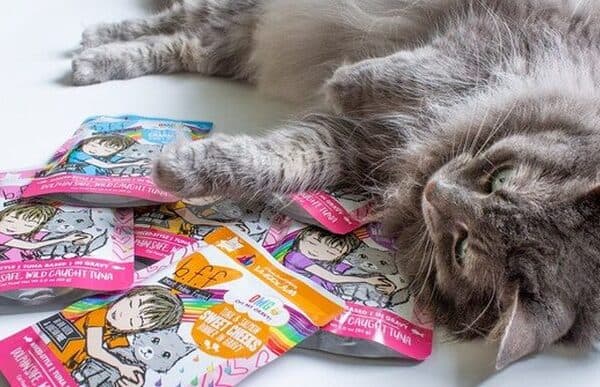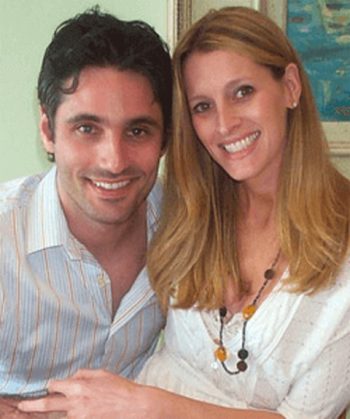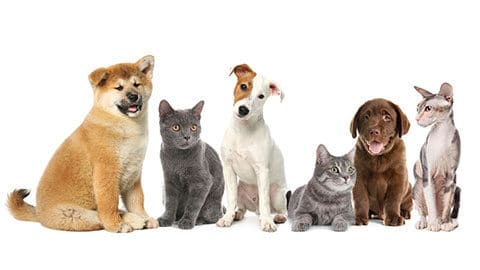
In 2006, I met David and Stacie Forman in the early months of starting their very own cat food company. At the time I had a weekly live call-in show on the Martha Stewart channel of Sirius/XM called “Cat Chat” and they called in with a question. They had heard me telling the audience that dry cat food was “kitty krack” — unhealthy and addictive for cats who were obligate carnivores — and they should only feed meat, wet food in a can — to their kitties. Like many other listeners, the Formans were astounded by this advice and called in to learn more. I was telling people that I called dry cat food “kitty krack” (as I still do on the podcast version of CAT CHAT ® which I launched when the Martha Stewart channel was canceled) because in researching my book “The Cat Bible: Everything Your Cat Expects You to Know,” I had learned of the harm to cats’ well-being from feeding highly processed carbohydrate food to a species that requires real meat.
An Ambitious Idea
David and Stacie Forman were especially interested because they had just launched the ambitious idea of a different kind of pet food company. Their unique idea to make canned cat food in a facility where food for people was made was unheard of at the time and seemed unrealistic. But David’s family was in the wholesale human food business that imported seafood from Thailand on a very large scale, which had gotten him to thinking he could start a business making pet food there, using the same ingredients and facility. It was a novel idea because no canned pet food had been made in a human food processing plant before. Anything made where human food is processed requires that 100% of the ingredients are fit for human consumption and handled with that level of care and hygiene, which was not at all the standard for how most pet food manufacturers operated then — or even now.

The irony was that they were creating what would be the pinnacle of quality cat food, but were also feeding dry cat food to Webster, Rudy and Vanessa! They did not know the physical harm to cats of ingesting dry carbohydrates, but once they heard the facts I talked about on the air, they said they would never feed it again. They vowed that if their company did well, and no matter how successful it might become (they were dreamers and optimists, for sure, but their hard work has paid off in spades) they would never make a dry cat food themselves. This was an ethical commitment to the well-being of cats, because the highest profit margin, by far, for pet food companies is in kibble.
The Formans Went Door to Door Introducing Weruva
David and Stacie were actually walking the sidewalks of Manhattan, going into pet food stores and pitching their idea, asking if the store would take a few cans and see if people wanted to try it for free. Their first modest run of food had wacky names like Paw Lickin’ Chicken, at a time there was no such whimsy in the pet food market — a tradition David has proudly continued with a vast array of styles and names of foods in their growing line of foods — Weruva, Cats in the Kitchen and BFF (Best Feline Friend) creations.
I was charmed by the gumption and passion of this young married couple, who had a novel idea to make cat food in the same way and at the same place that human foods were made. They had given the company the unlikely [and barely pronounceable!] name Weruva, combining the names of their rescued kitties at the time: WEbster RUdy, and VAnessa. It sounded impractical because they were jumping into the pet food business — a highly competitive arena with many established brands of cat food. They knew very little about the Big Business of pet food, with its established ways of doing business — manufacturing plants, distribution companies, centralized operations — but they were determined to carve a niche for themselves. They hired their own team of salespeople to go door to door to independent pet food stores, as they had themselves, and they built the brand one store owner and one cat owner at a time.
David Forman is the Ultimate Pet Foodie Geek
Nowadays many other pet food companies have followed their lead and put human-grade pet foods in cans and pouches, but at the time it sounded highly impractical. Right from the start, David dove into the nuances of pet nutrition and became a serious “pet foodie nerd,” focused entirely on improving what he was creating, never looking up at what others were doing, never looking down at the bottom line to guide his decisions. At a time when many high-end pet food companies have sold out to venture capitalists, who want to cash in on the lucrative pet business, and influence (or control) how to get maximum profits from a brand, the Formans wholly own and control what happens at Weruva. I love them for that. I love them for never wavering from their vision. And I am forever grateful that for over 15 years they have sponsored my shows and supported our shared mission of telling the truth, advocating for pet wellness, and sticking to it.
—Tracie Hotchner
(Have a comment? Share it on Facebook)

